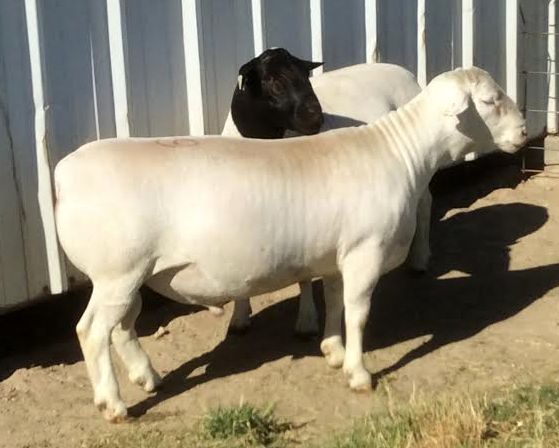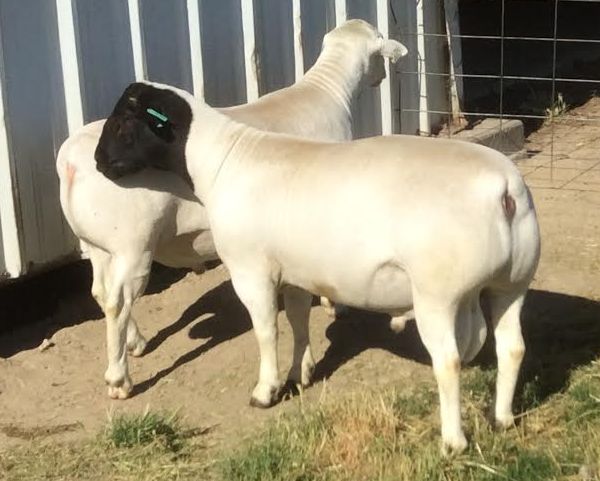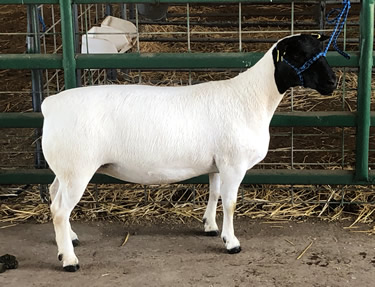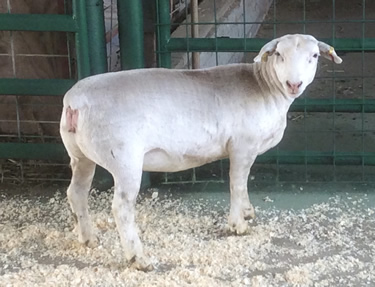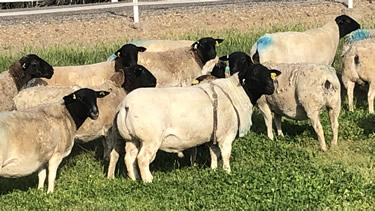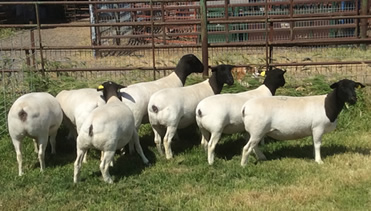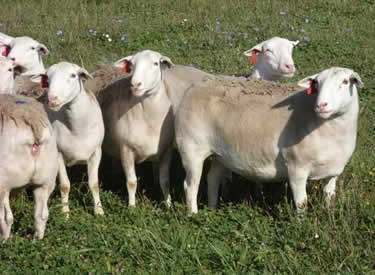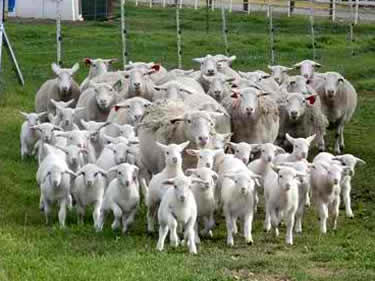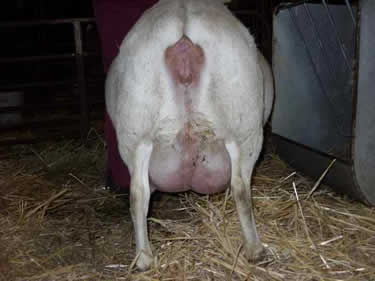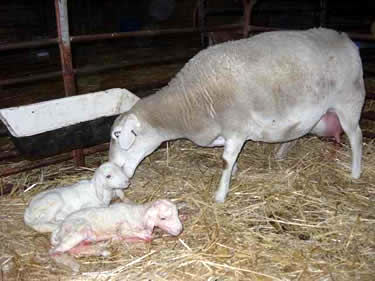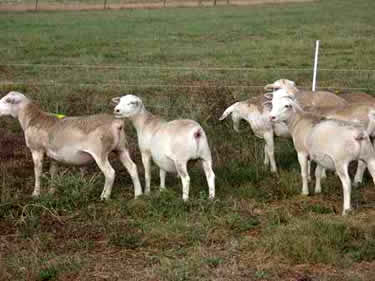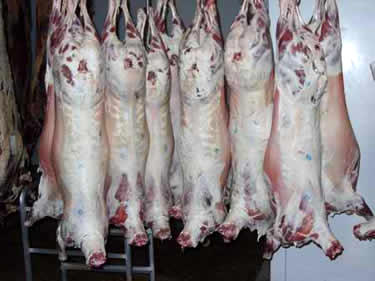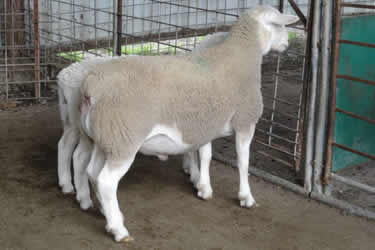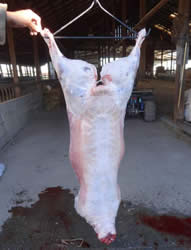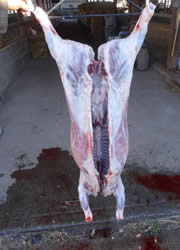Glenn Land Farm Dorper Sheep
|
|
Dorper Yearling Ewe |
White Dorper Yearling Ewe
|
|
New ewes from Holman purchased at the 2017 Duncan, OK sale
|
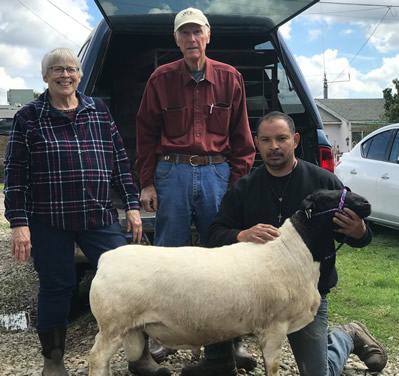
Dorper ram purchased from Juan Navarro of J.N. Dorpers
Our goal is to develop a flock of productive, easy-care sheep that are scrapie resistant, require no shearing and that reach market specs on grass. We are currently using rams with high shedding scores, while culling heavily on production traits. We currently have about 100 ewes. We are producing ewes with a lot of capacity that have longevity. We started with a flock of White Dorper-St. Croix hair sheep with a simple goal in mind; to produce a sheep with exceptional meat qualities that are easy-care. We upgraded to purebred White Dorper status by using semen from outstanding sires from the U.S. and Australia.
|
|
 |
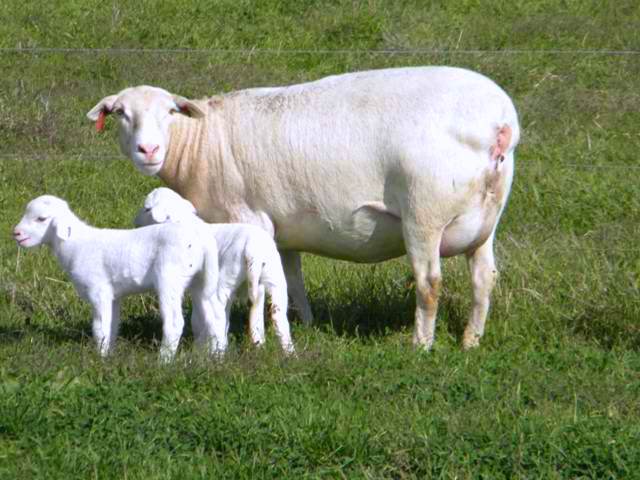 |
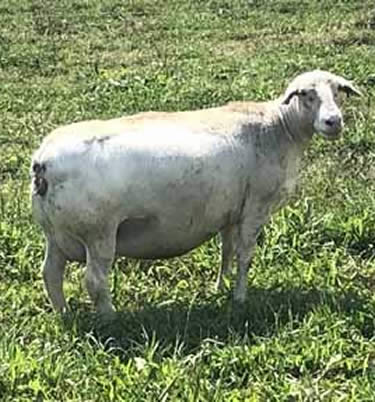 |
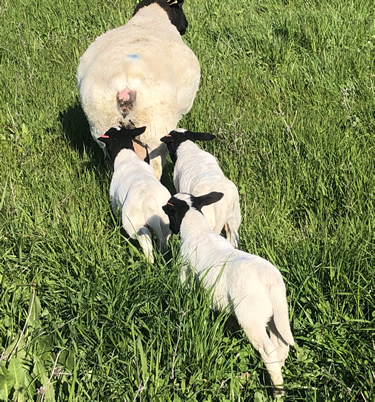 |
Farm Management
|
Our livestock are pastured on the irrigated grass and clover pastures from March to November. They are then fed alfalfa hay and almond hulls through the winter. Our sheep are given two clostridial 8-way vaccinations and selenium supplement. They are dewormed as necessary. Half of our ewes of both breeds are lambed in September and October in order to have sheep that fit into the fall classes at shows and sales. The remainder of the ewes are bred to lamb in the spring to take advantage of our irrigated pasture growth cycle and to fit into the spring classes at the shows and sales. Both fall and spring lambs are creep fed a 70:30 alfalfa:corn pellet in An Advantage 3 feeder until weaning at 90 days of age and then they are given ½ pound of almond hulls while grazing the irrigated pasture to insure adequate dry matter intake. The fall lambing ewes are supplemented through the winter with a small amount of alfalfa hay and almond hulls. Spring lambers are given a limited amount of alfalfa hay and hulls until the irrigated pasture comes on and then only pasture until weaning. We sell a significant number of rams each year and we start out by growing out twice the number we will actually sell as breeding rams. As they grow we watch for unsoundness, slow growth and breed characteristics and those that do not measure up are sold as meat animals for ethnic holidays. That insures that the breeding rams we offer are sound and we have a longer time to evaluate them before offering them for sale. The demand for our White Dorper rams has been very high due to breeders wanting to eliminate shearing and those interested in the grass fed market for their lambs. |
Got milk? Dorpers do! |
Milking machine!
|
5 month old. |
pasture finished lambs
|
Home processed Dorper wether before and. |
after showing White Dorper muscling.
|
Dorper Links
American Dorper Sheep Breeders Society
California Wool Growers Association


